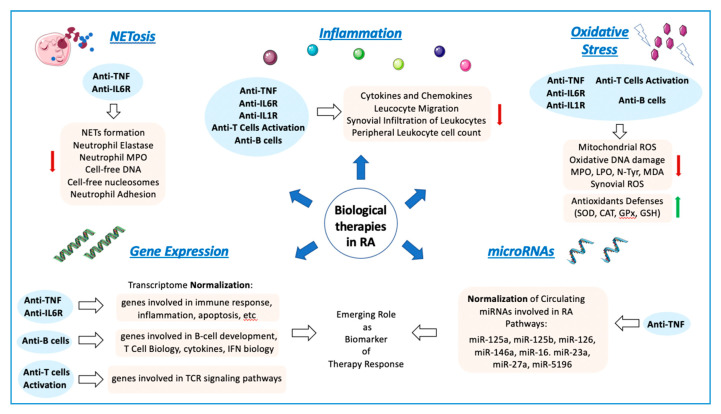Figure 3.
Molecular Effects of Biological therapies in RA patients. Biological therapies in RA have shown a wide range of beneficial molecular effects, by controlling numerous mechanisms altered in the disease. Hence, several therapies reduced the protein levels of circulating inflammatory mediators as well as the migration rate of activated immune cells to joints. Oxidative stress and NETosis have been also ameliorated after biological therapies including the reduction of ROS and oxidative markers, and the increase of the antioxidant defenses as well as the decrease of the NETs formation by neutrophils and related derived products. The altered transcriptome profile in peripheral blood and synovium of RA patients has been found normalized after biologics drugs, on which genes involved in key molecular pathways associated with the disease were modulated. Levels of microRNAs controlling the expression of central inflammatory genes have been found modulated in peripheral blood, plasma, and synovial fluid after anti-TNF therapy and some of, them along with mRNAs, are emerging as potential biomarkers predictors of therapy response.

